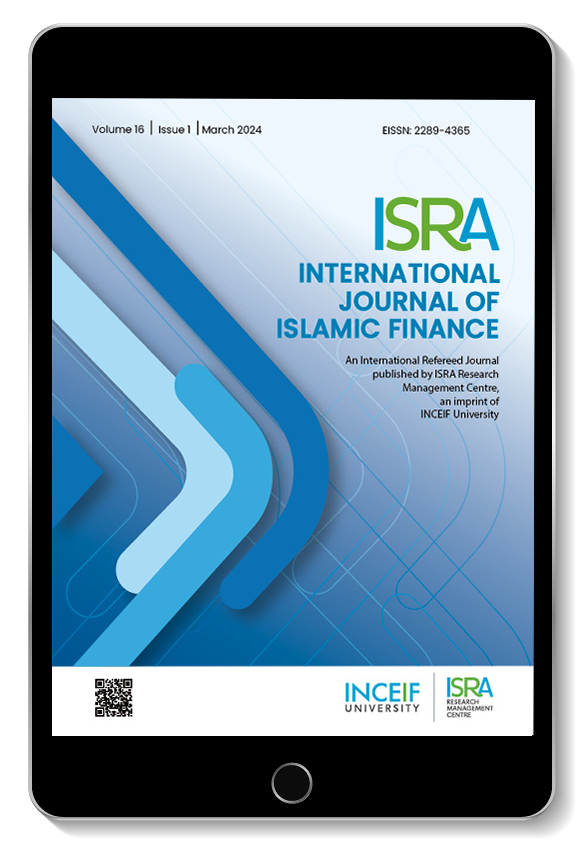Factors necessary for effective corporate waqf management for Malaysian public healthcare
IF 2.8
Q2 BUSINESS, FINANCE
引用次数: 13
Abstract
PurposeThis research paper aims to determine the factors needed to propose a platform where waqf (Islamic endowment) organizations can collaborate with government public hospitals to develop corporate waqf hospitals. Consequently, the elements of governance and sustainability are included in the management of corporate waqf hospitals thereby leading to the corporatization of public hospitals.Design/methodology/approachThis study adopts the qualitative research methodology and undertakes content analysis of data collected from journal articles, magazines and official websites. Data analysis involves open coding with NVivo 12.FindingsGeneral findings from the literature review have shown that architectural and engineering fundamentals were essential factors in the success of past waqf hospitals of the era between 8th and 14th centuries. In that era, the decentralized waqf-based hospitals employed the mutawalli (the trustee/manager of the waqf assets) to govern the administration of the hospitals. Present corporate waqf hospitals can exploit the elements identified from past waqf-based hospitals and additionally adopt the private-public partnership model in the form of a muḍārabah (profit-sharing contract) agreement to design a sustainable waqf governance model for Malaysian public healthcare services.Research limitations/implicationsThe proposed platform is designed for a corporate waqf model developed in collaboration between Malaysian waqf institutions and public healthcare services. It abides by both the Malaysian fatwa (Islamic rulings) on waqf and the laws of the Malaysian Government.Practical implicationsThere is potential for developing the Malaysian corporate waqf-governance healthcare model which will enable the hospital to provide better quality healthcare to more patients through upgrading the quality of equipment used in hospitals and/or better facilities at equal or lower costs. Consequently, this will not only improve waqf management and distribution but also result in reduction of government expenditure.Social implicationsThis research promotes the concept of a corporate waqf hospital which will provide innumerable beneficial healthcare services in terms of improved healthcare quality at affordable costs to the general public and at no cost to the poor and the underprivileged.Originality/valueAlthough waqf has played an important role as a vehicle for Islamic financing in the society for centuries, a model of collaboration or partnership of waqf with public healthcare services has yet to be explored and developed. With proper corporate governance and well-managed sustainability in a corporate waqf model, this newly developed partnership between waqf institutions and public healthcare providers can be a first step in many more interesting collaborative arrangements that can be established between waqf institutions and public services in the future.马来西亚公共医疗保健有效企业waqf管理的必要因素
本研究旨在确定所需要的因素,以提出一个平台,让伊斯兰教捐赠组织与政府公立医院合作发展企业伊斯兰教捐赠医院。因此,治理和可持续性的要素被纳入公司化医院的管理,从而导致公立医院的公司化。设计/方法/方法本研究采用定性研究方法,对从期刊文章、杂志和官方网站收集的数据进行内容分析。数据分析涉及使用NVivo 12进行开放编码。文献综述的总体发现表明,建筑和工程基础是8世纪至14世纪期间过去waqf医院成功的关键因素。在那个时代,分散的以waqf为基础的医院雇用mutawalli (waqf资产的受托人/管理者)来管理医院的管理。目前的企业waqf医院可以利用从过去以waqf为基础的医院中确定的要素,并采用muḍārabah(利润分享合同)协议形式的公私伙伴关系模式,为马来西亚公共医疗保健服务设计可持续的waqf治理模式。研究限制/影响提议的平台是为马来西亚waqf机构和公共医疗保健服务机构合作开发的企业waqf模型而设计的。它既遵守马来西亚伊斯兰教关于waqf的裁决,也遵守马来西亚政府的法律。53 .实际影响有可能发展马来西亚的企业waqf-governance医疗保健模式,使医院能够以同等或更低的成本,通过提高医院所用设备的质量和/或更好的设施,为更多的病人提供更高质量的医疗保健。因此,这不仅可以改善waqf的管理和分配,还可以减少政府开支。社会意义本研究推广了企业waqf医院的概念,该医院将提供无数有益的医疗保健服务,以提高医疗保健质量,为公众提供负担得起的费用,而穷人和弱势群体则不需要任何费用。创意/价值尽管几个世纪以来,伊斯兰基金作为伊斯兰融资的工具在社会中发挥了重要作用,但伊斯兰基金与公共医疗保健服务的合作或伙伴关系模式尚未探索和发展。在企业waqf模式中,有了适当的公司治理和管理良好的可持续性,waqf机构和公共医疗保健提供者之间的这种新发展的伙伴关系可以成为waqf机构和公共服务之间未来建立的许多有趣的合作安排的第一步。
本文章由计算机程序翻译,如有差异,请以英文原文为准。
求助全文
约1分钟内获得全文
求助全文
来源期刊

ISRA International Journal of Islamic Finance
BUSINESS, FINANCE-
CiteScore
3.40
自引率
17.40%
发文量
18
审稿时长
20 weeks
期刊介绍:
It is the aspiration of the editorial committee that IJIF achieves the highest rank in quality and substance. It is thus our aim that the journal be carried in the Thompson Reuters’ ISI and Scopus databases. By ensuring high standards in articles published in Islamic finance we ensure that further innovation and research is carried out and promoted in the Islamic finance industry and academia. IJIF publishes 2 issues per annum.
 求助内容:
求助内容: 应助结果提醒方式:
应助结果提醒方式:


